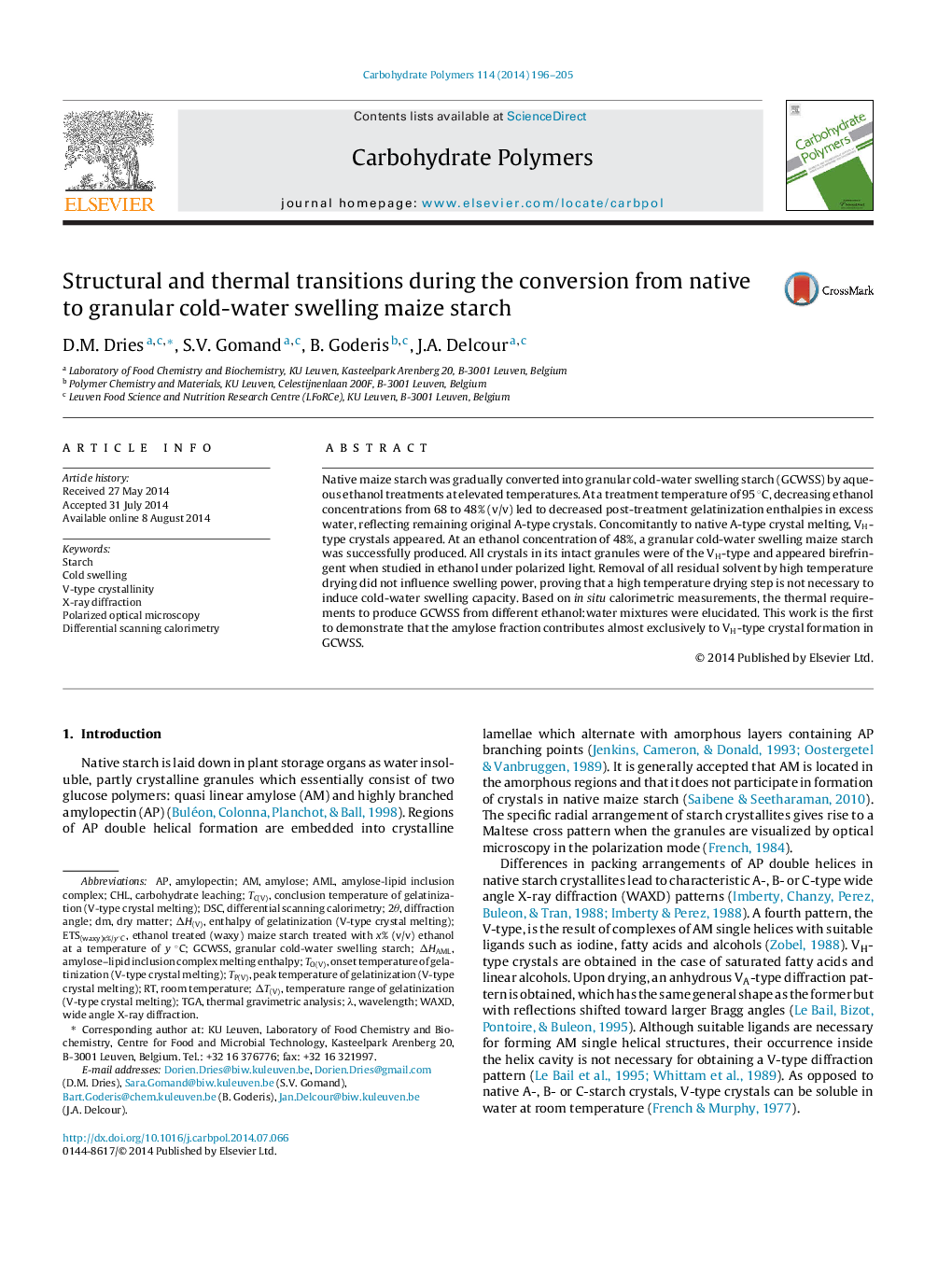| Article ID | Journal | Published Year | Pages | File Type |
|---|---|---|---|---|
| 7790470 | Carbohydrate Polymers | 2014 | 10 Pages |
Abstract
Native maize starch was gradually converted into granular cold-water swelling starch (GCWSS) by aqueous ethanol treatments at elevated temperatures. At a treatment temperature of 95 °C, decreasing ethanol concentrations from 68 to 48% (v/v) led to decreased post-treatment gelatinization enthalpies in excess water, reflecting remaining original A-type crystals. Concomitantly to native A-type crystal melting, VH-type crystals appeared. At an ethanol concentration of 48%, a granular cold-water swelling maize starch was successfully produced. All crystals in its intact granules were of the VH-type and appeared birefringent when studied in ethanol under polarized light. Removal of all residual solvent by high temperature drying did not influence swelling power, proving that a high temperature drying step is not necessary to induce cold-water swelling capacity. Based on in situ calorimetric measurements, the thermal requirements to produce GCWSS from different ethanol:water mixtures were elucidated. This work is the first to demonstrate that the amylose fraction contributes almost exclusively to VH-type crystal formation in GCWSS.
Keywords
Related Topics
Physical Sciences and Engineering
Chemistry
Organic Chemistry
Authors
D.M. Dries, S.V. Gomand, B. Goderis, J.A. Delcour,
